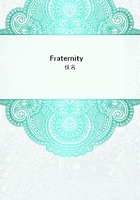
第22章
Since in the flutter of her spirit caused by the words of Mrs. Hughs, Cecilia felt she must do something, she decided to change her dress.
The furniture of the pretty room she shared with Stephen had not been hastily assembled. Conscious, even fifteen years ago, when they moved into this house, of the grave Philistinism of the upper classes, she and Stephen had ever kept their duty to aestheticism green; and, in the matter of their bed, had lain for two years on two little white affairs, comfortable, but purely temporary, that they might give themselves a chance. The chance had come at last--a bed in real keeping with the period they had settled on, and going for twelve pounds. They had not let it go, and now slept in it--not quite so comfortable, perhaps, but comfortable enough, and conscious of duty done.
For fifteen years Cecilia had been furnishing her house; the process approached completion. The only things remaining on her mind--apart, that is, from Thyme's development and the condition of the people--were: item, a copper lantern that would allow some light to pass its framework; item, an old oak washstand not going back to Cromwell's time. And now this third anxiety had come!
She was rather touching, as she stood before the wardrobe glass divested of her bodice, with dimples of exertion in her thin white arms while she hooked her skirt behind, and her greenish eyes troubled, so anxious to do their best for everyone, and save risk of any sort. Having put on a bramble-coloured frock, which laced across her breast with silver lattice-work, and a hat (without feathers, so as to encourage birds) fastened to her head with pins (bought to aid a novel school of metal-work), she went to see what sort of day it was.
The window looked out at the back over some dreary streets, where the wind was flinging light drifts of smoke athwart the sunlight. They had chosen this room, not indeed for its view over the condition of the people, but because of the sky effects at sunset, which were extremely fine. For the first time, perhaps, Cecilia was conscious that a sample of the class she was so interested in was exposed to view beneath her nose. 'The Hughs live somewhere there,' she thought. 'After all I think B. ought to know about that man. She might speak to father, and get him to give up having the girl to copy for him--the whole thing's so worrying.'
In pursuance of this thought, she lunched hastily, and went out, making her way to Hilary's. With every step she became more uncertain. The fear of meddling too much, of not meddling enough, of seeming meddlesome; timidity at touching anything so awkward;distrust, even ignorance, of her sister's character, which was like, yet so very unlike, her own; a real itch to get the matter settled, so that nothing whatever should come of it--all this she felt. She hurried, dawdled, finished the adventure almost at a run, then told the servant not to announce her. The vision of Bianca's eyes, while she listened to this tale, was suddenly too much for Cecilia. She decided to pay a visit to her father first.
Mr. Stone was writing, attired in his working dress--a thick brown woollen gown, revealing his thin neck above the line of a blue shirt, and tightly gathered round the waist with tasselled cord; the lower portions of grey trousers were visible above woollen-slippered feet.
His hair straggled over his thin long ears. The window, wide open, admitted an east wind; there was no fire. Cecilia shivered.
"Come in quickly," said Mr. Stone. Turning to a big high desk of stained deal which occupied the middle of one wall, he began methodically to place the inkstand, a heavy paper-knife, a book, and stones of several sizes, on his guttering sheets of manuscript.
Cecilia looked about her; she had not been inside her father's room for several months. There was nothing in it but that desk, a camp bed in the far corner (with blankets, but no sheets), a folding washstand, and a narrow bookcase, the books in which Cecilia unconsciously told off on the fingers of her memory. They never varied. On the top shelf the Bible and the works of Plautus and Diderot; on the second from the top the plays of Shakespeare in a blue edition; on the third from the bottom Don Quixote, in four volumes, covered with brown paper; a green Milton; the "Comedies of Aristophanes"; a leather book, partially burned, comparing the philosophy of Epicurus with the philosophy of Spinoza; and in a yellow binding Mark Twain's "Huckleberry Finn." On the second from the bottom was lighter literature: "The Iliad"; a "Life of Francis of Assisi"; Speke's "Discovery of the Sources of the Nile"; the "Pickwick Papers"; "Mr. Midshipman Easy"; The Verses of Theocritus, in a very old translation; Renan's "Life of Christ"; and the "Autobiography of Benvenuto Cellini." The bottom shelf of all was full of books on natural science.
The walls were whitewashed, and, as Cecilia knew, came off on anybody who leaned against them. The floor was stained, and had no carpet.
There was a little gas cooking-stove, with cooking things ranged on it; a small bare table; and one large cupboard. No draperies, no pictures, no ornaments of any kind; but by the window an ancient golden leather chair. Cecilia could never bear to sit in that oasis;its colour in this wilderness was too precious to her spirit.
"It's an east wind, father; aren't you terribly cold without a fire?"Mr. Stone came from his writing-desk, and stood so that light might fall on a sheet of paper in his hand. Cecilia noted the scent that went about with him of peat and baked potatoes. He spoke: